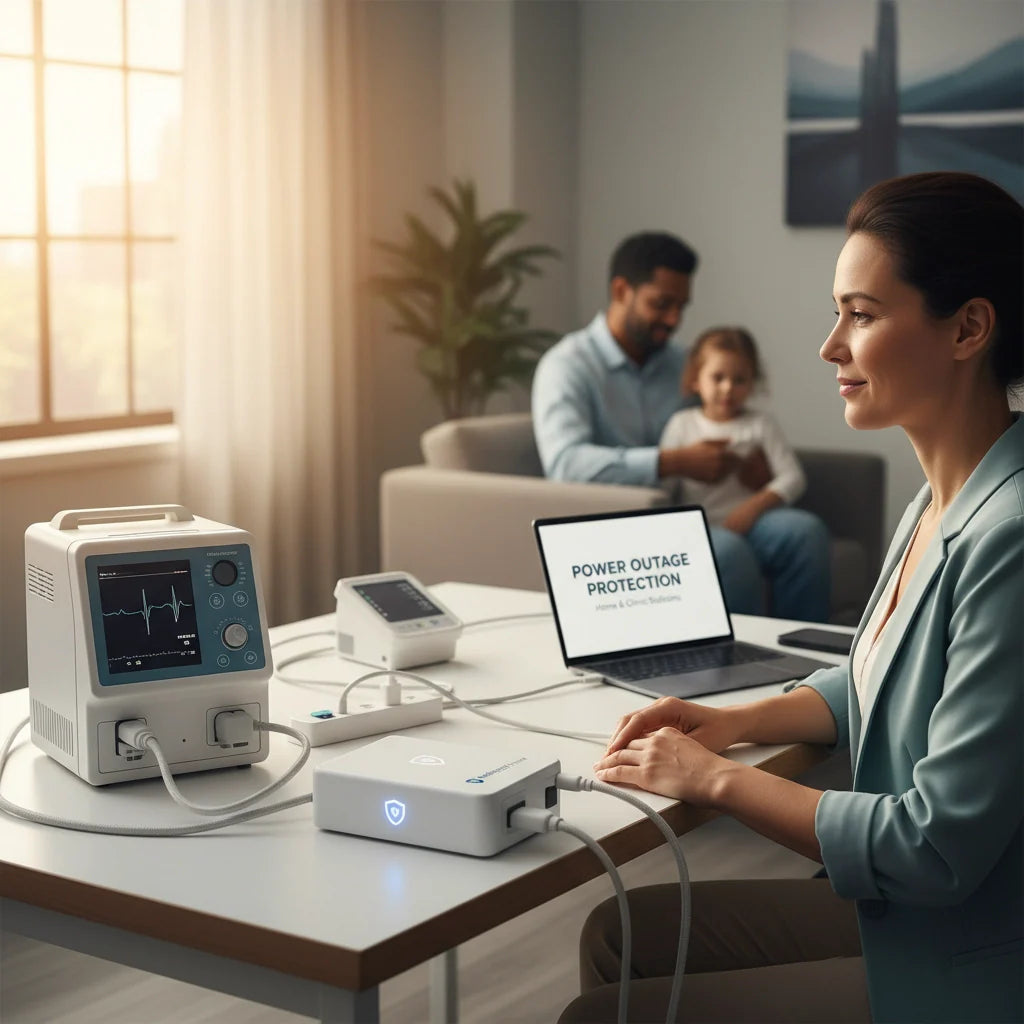
How to Protect Sensitive Medical Devices from Power Outages: Tips for Home & Clinics
Share
When the lights go out, medical devices can't afford to follow suit. Whether you're managing a home healthcare setup or running a medical clinic, power outages pose serious risks to sensitive equipment and the patients who depend on them. The good news? With proper planning and the right backup systems, you can keep critical medical devices running when the grid fails.
Understanding the Stakes
Medical device failures during power outages aren't just inconvenient: they can be life-threatening. Ventilators, oxygen concentrators, CPAP machines, and refrigerated medications all require consistent power to function properly. Even brief interruptions can compromise patient care and damage expensive equipment.
The key is recognizing that different devices have different power needs and vulnerabilities. Some equipment can tolerate short outages, while others need instant backup power to prevent serious consequences.
Essential Preparation Steps
Create a Complete Device Inventory
Start by documenting every medical device in your home or facility. For each piece of equipment, record:
• Power requirements (watts/amps) • Battery backup capabilities (if any) • Runtime on internal battery • Criticality level for patient care • Manufacturer's power outage recommendations
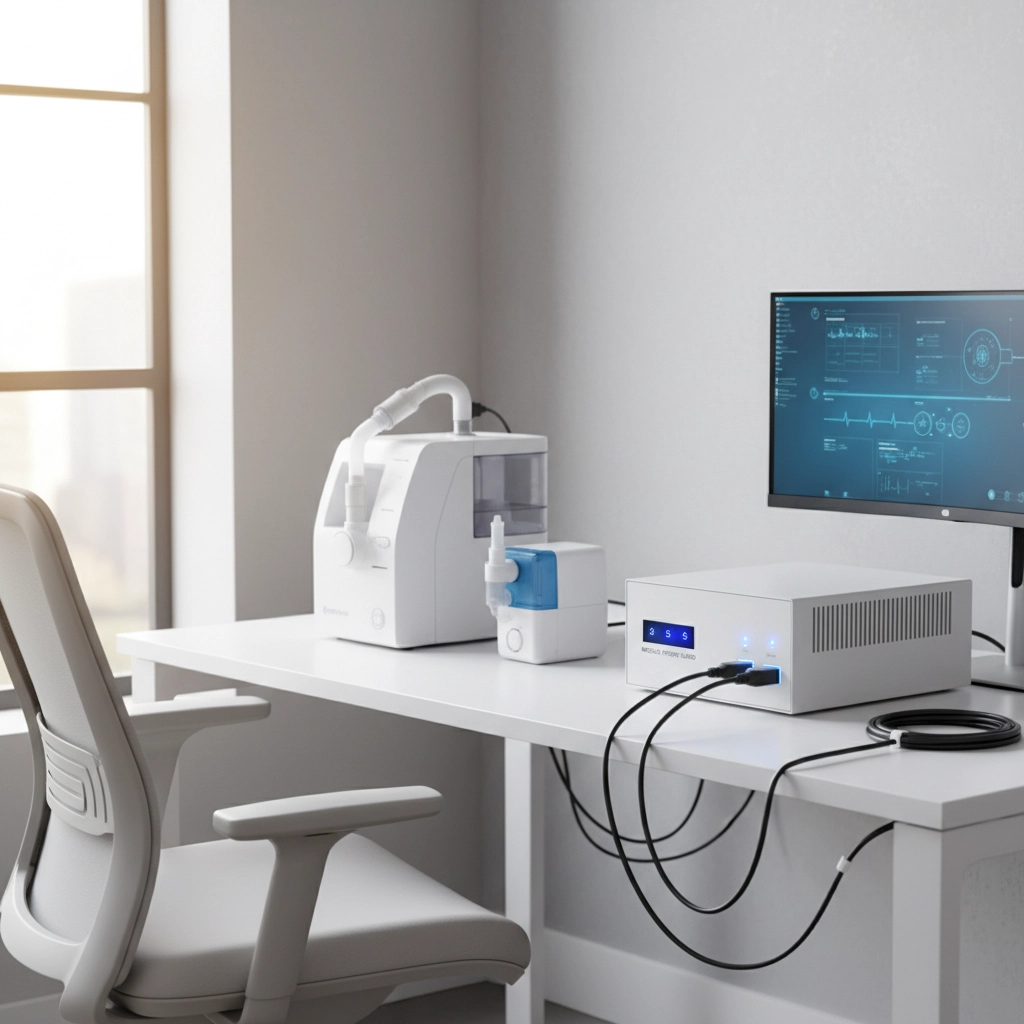
Develop Emergency Contact Lists
Maintain updated contact information for:
• Healthcare providers • Equipment manufacturers • Local emergency services • Utility company medical priority programs • Backup care locations (hospitals, clinics)
Register with Your Utility Company
Many utility companies offer medical baseline programs that provide priority restoration and advance notification of planned outages. These programs can be lifesavers during extended outages, giving you crucial extra time to implement backup plans.
Backup Power Solutions by Setting
Home Healthcare Power Protection
Uninterruptible Power Supply (UPS) Systems
Medical-grade UPS systems provide the most reliable immediate backup for home medical devices. Unlike standard computer UPS units, medical-grade systems deliver clean "pure sine wave" power that sensitive equipment requires.
APC by Schneider Electric offers several medical-grade UPS models specifically designed for healthcare applications. These systems automatically switch to battery power within milliseconds of detecting an outage, providing seamless protection for critical devices.
Key features to look for in home medical UPS systems:
• Pure sine wave output
• Medical device compatibility certification
• Battery runtime of 30 minutes to 4 hours
• Easy battery replacement
• Audible alarms for power events
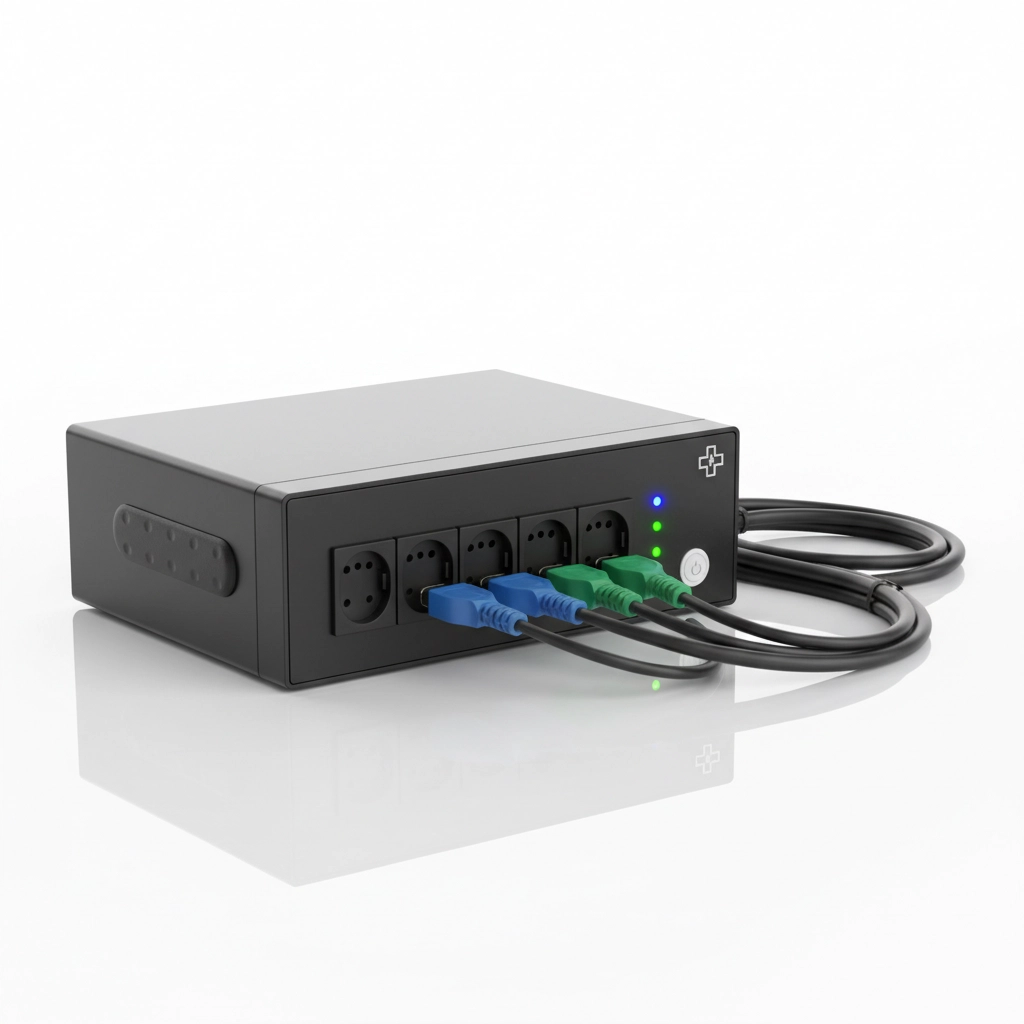
Portable Power Stations
For moderate backup needs and emergency mobility, portable power stations offer flexibility that fixed systems can't match. These units can be charged from wall outlets, car adapters, or solar panels, making them ideal for extended outages or emergency evacuations.
Choose portable stations with: • Multiple AC outlets and USB ports • Capacity appropriate for your device's runtime needs • Fast recharge capabilities • Quiet operation for bedroom use
Clinical and Healthcare Facility Solutions
Medical clinics and healthcare facilities require more robust backup solutions due to higher power demands and regulatory requirements.
Whole-Building UPS Systems
Large-capacity UPS systems can protect entire clinic operations, including:
• Patient monitoring equipment • Diagnostic machinery • Computer systems and electronic health records • Lighting and HVAC systems • Communication equipment
3-Phase Medical Power Systems
For facilities with heavy electrical loads, 3-phase medical power systems provide scalable backup solutions with advanced monitoring capabilities. These systems integrate seamlessly with existing electrical infrastructure and can support multiple pieces of equipment simultaneously.
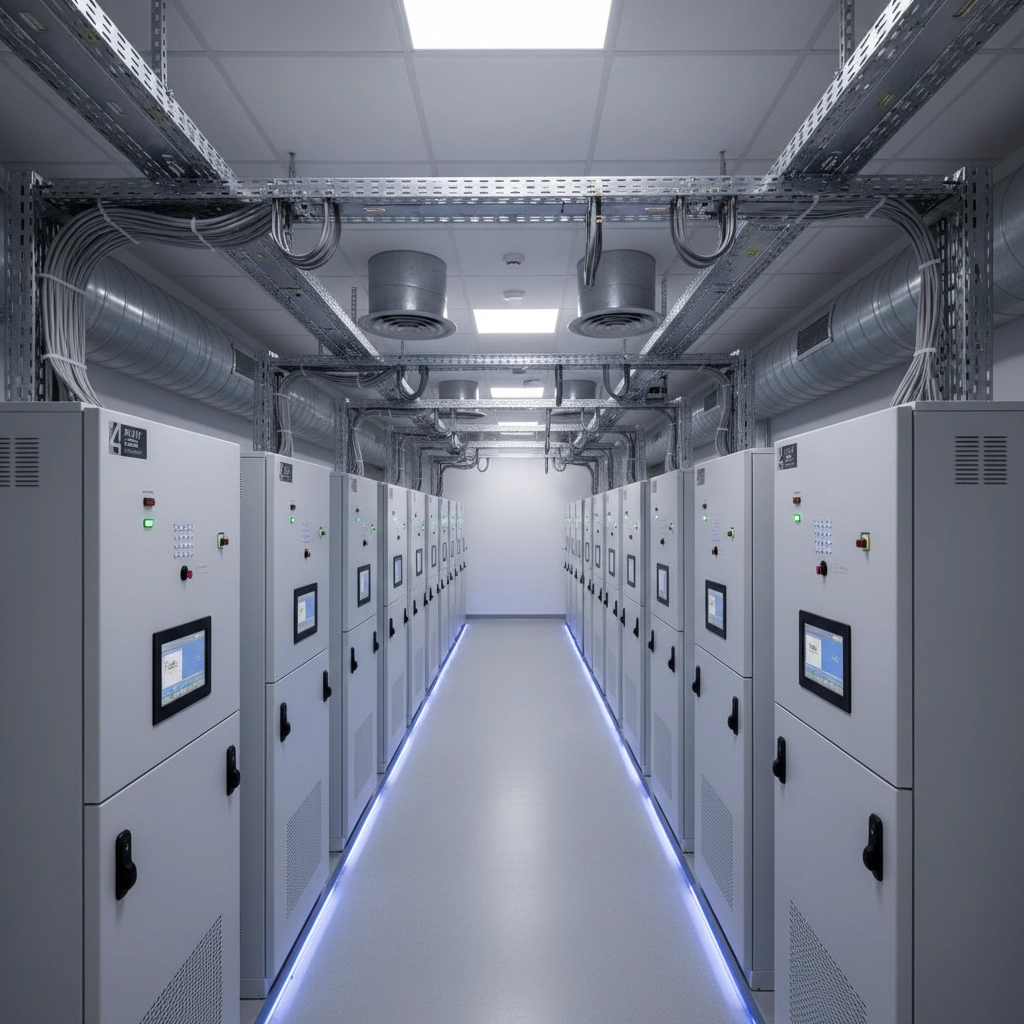
Device-Specific Protection Strategies
Respiratory Equipment
Ventilators and Life Support
These devices require the highest level of backup protection:
• Install medical-grade UPS with extended runtime • Maintain manual resuscitation bags as ultimate backup • Keep extra batteries properly maintained and tested • Have evacuation plan to hospital if backup power fails
CPAP and BiPAP Machines
• Use UPS systems or dedicated CPAP battery packs • Keep car adapters available for emergency charging • Stock distilled water for humidifier systems • Discuss alternative treatments with healthcare provider
Oxygen Equipment
Stationary Oxygen Concentrators
• Connect to UPS systems for automatic backup • Maintain standalone oxygen tanks that don't require electricity • Keep portable concentrators with extra batteries • Learn manual operation procedures for all equipment
Portable Oxygen Concentrators
• Maintain multiple spare batteries • Keep car chargers accessible • Have backup stationary tanks available
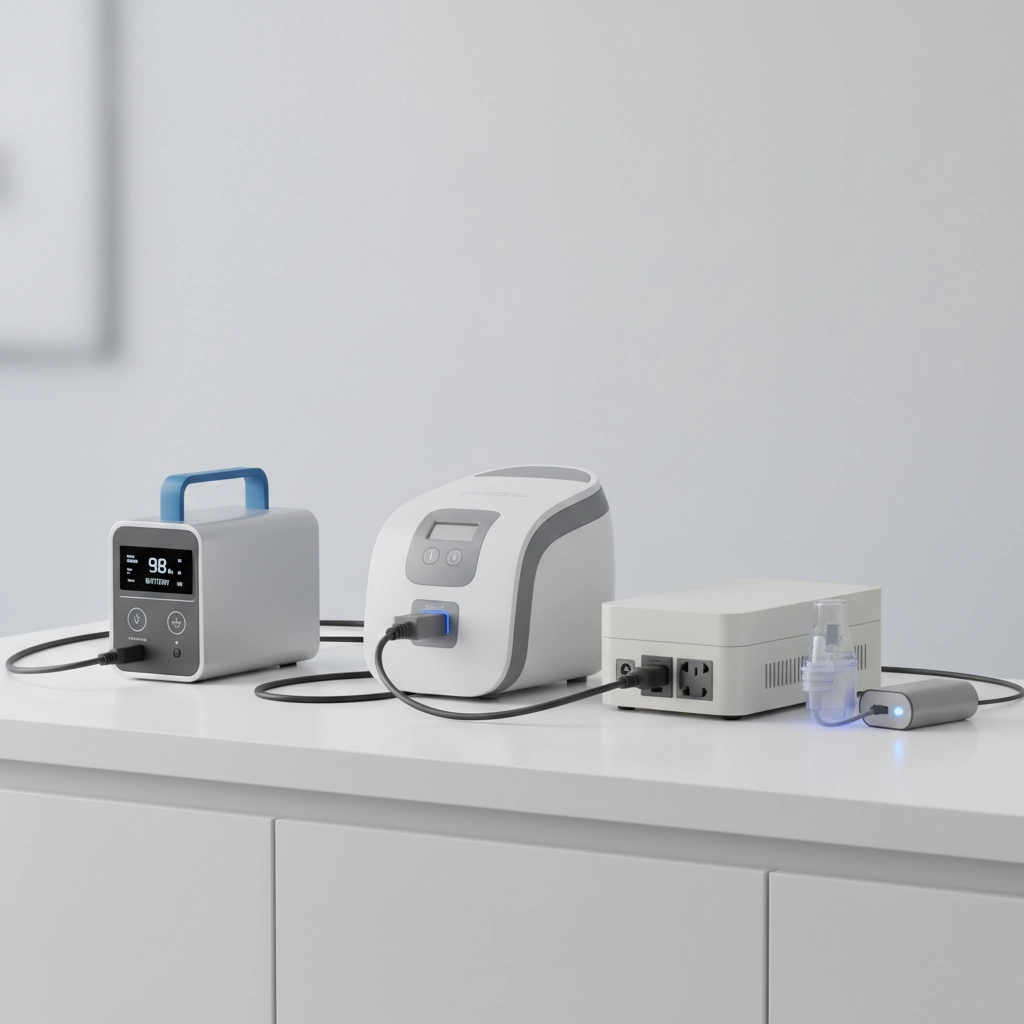
Temperature-Sensitive Medications and Supplies
Medications requiring refrigeration need special attention during outages:
• Use coolers with ice packs and thermometers • Monitor temperature to stay below 46°F (8°C) • Contact pharmacist for guidance on extended outages • Consider medication coolers with battery-powered cooling
Mobility and Communication Devices
Powered Wheelchairs and Scooters
• Maintain lightweight manual wheelchair as backup • Keep extra batteries charged and ready • Have car charging capabilities available
Communication Devices
• Keep phones and tablets charged with portable battery banks • Maintain landline phone that doesn't require electricity • Consider two-way radios for emergency communication
Emergency Kit Essentials
Create a comprehensive emergency kit that includes:
• Fully charged backup batteries for all devices • Power banks and charging cables • Equipment manuals and operation instructions • Emergency contact lists • Flashlights and extra batteries • Non-perishable food and water • Blankets and warm clothing • First aid supplies
Store everything in an easily accessible location and review contents regularly.
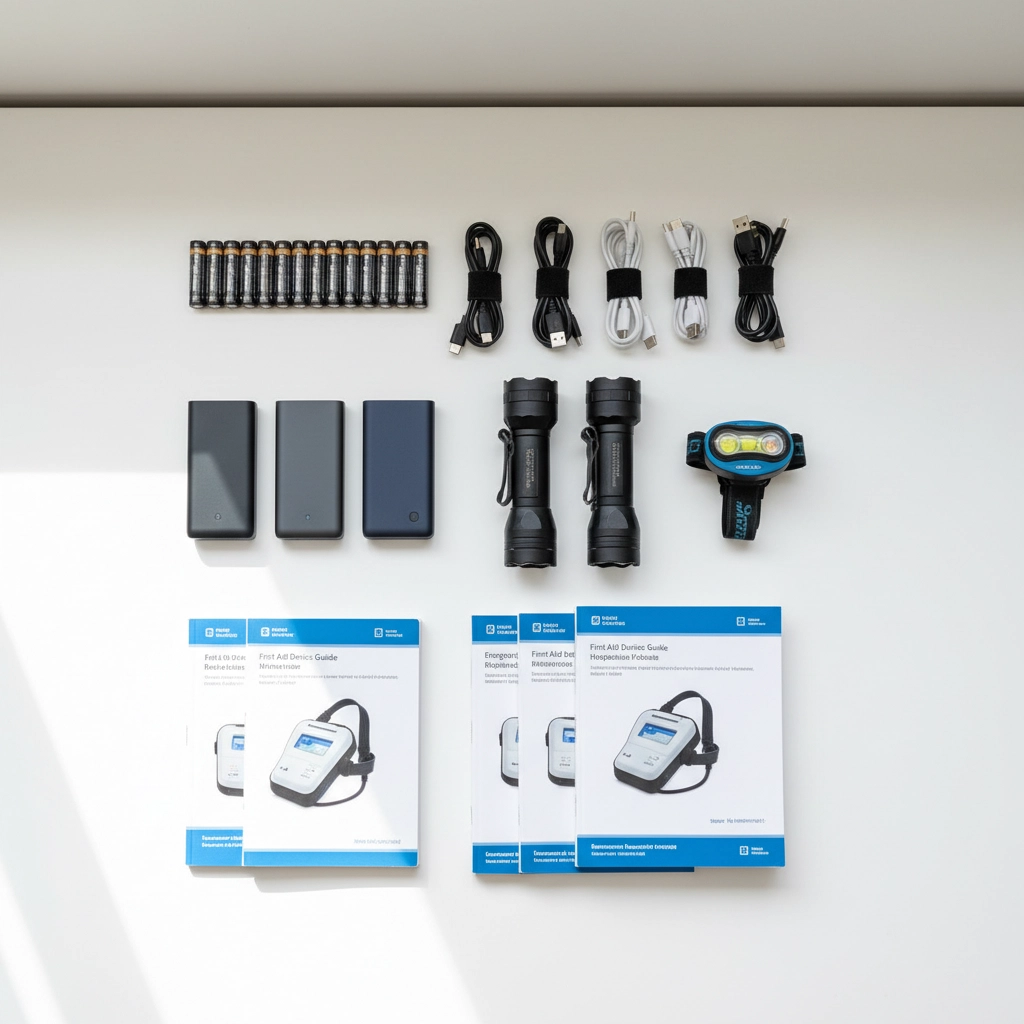
Generator Safety Considerations
If using generators for backup power:
• Only operate generators outdoors, at least 20 feet from buildings • Never use generators in garages, basements, or enclosed spaces • Follow all manufacturer safety instructions • Use proper extension cords rated for the electrical load • Install carbon monoxide detectors in your home • Have generators professionally serviced annually
Maintenance and Testing
Regular maintenance ensures your backup systems work when needed:
• Test UPS systems monthly using built-in diagnostic tools • Replace UPS batteries according to manufacturer recommendations • Verify portable power stations hold full charges • Update emergency contact information quarterly • Practice emergency procedures with family members or staff
Creating Redundant Systems
The most robust protection comes from having multiple layers of backup:
- Primary backup: Medical-grade UPS for immediate protection
- Secondary backup: Portable power station for extended runtime
- Tertiary backup: Manual alternatives or evacuation plan
This approach ensures that if one system fails, others are available to maintain critical care.
When to Seek Professional Help
Consider consulting with power protection specialists if you:
• Manage multiple high-power medical devices • Experience frequent power quality issues • Need whole-facility backup solutions • Require regulatory compliance for medical facilities
Professional assessment can identify the most cost-effective solutions for your specific needs and ensure proper installation and configuration.
Planning for Extended Outages
Some situations require preparation for multi-day power outages:
• Stock sufficient backup batteries and fuel • Arrange alternative care locations • Coordinate with healthcare providers for medication refills • Consider temporary relocation if backup systems are insufficient
Taking Action
Protecting sensitive medical devices from power outages requires proactive planning and the right equipment. Start by assessing your current devices and backup capabilities, then gradually build a comprehensive protection system.
Don't wait for the next outage to test your preparedness. Contact our team today to discuss medical-grade power protection solutions tailored to your specific needs. Whether you're protecting a single CPAP machine or an entire medical facility, we can help you choose the right backup power systems to keep critical equipment running when it matters most.
The investment in proper power protection pays for itself the first time it prevents device damage or ensures uninterrupted patient care. Your health and safety are too important to leave to chance.
